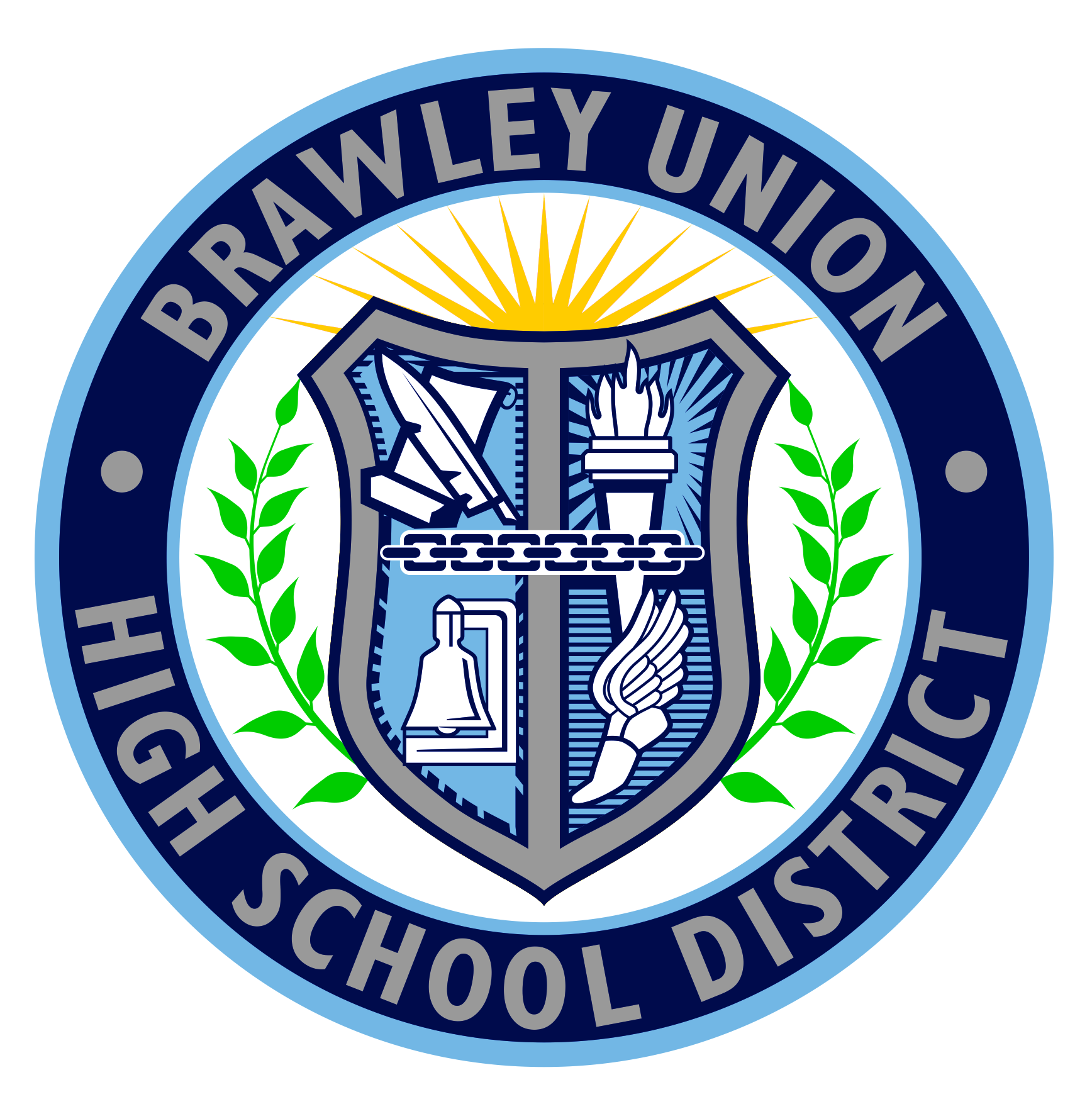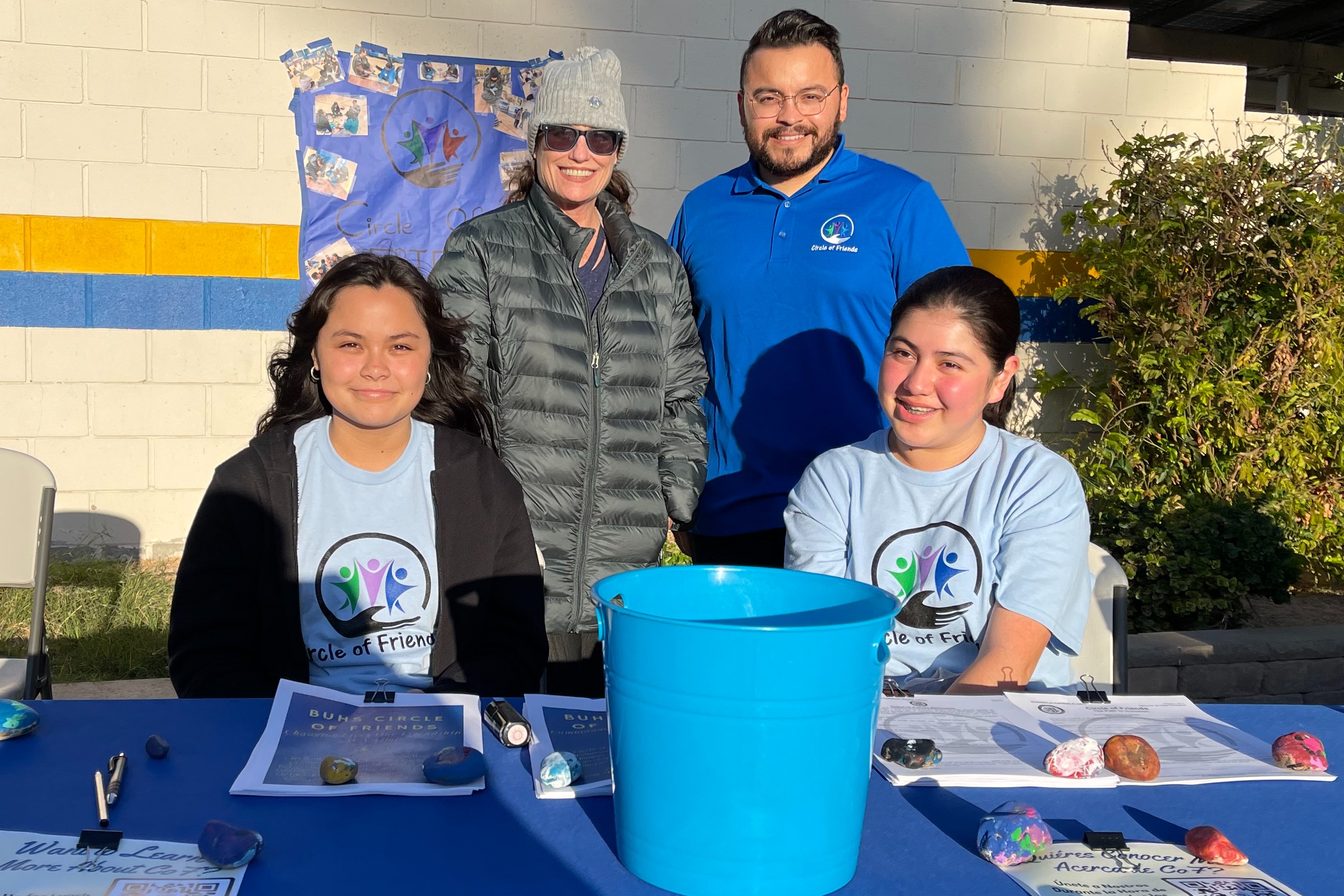Special Education/Student Services
The mission of the Brawley Union High School District is to provide a student-centered educational experience, focused on high academic expectations, in a safe and secure learning environment.
The role of the Special Education Department is to provide support services for students with disabilities to assist in reaching their full potential as members of their community. Special education services are provided only after all resources of the general education programs have been considered and utilized. Our program is dedicated in overseeing the social, emotional, behavioral, physical and academic needs of all students-affording access to be fully or at least partially immersed within general education programs along with preparation for post-secondary life.
Administrative Team
Dr. Julie Fernandez, Psy. D.
Director of Special Education
Phone: 760-312-6077
jfernandez@brawleyhigh.org
Special Education Secretary
Ana Karen Bastidas
Phone: (760) 312-6090 / (760) 312-4071
Fax Number: (760) 312-6074
kbastidas@brawleyhigh.org
Speech & Language Pathologist (Tuesday's & Wednesday's)
Nabil Noujaim Phone: (760) 312-6066
nnoujaim@brawleyhigh.org
District School Psychologists
Ruby Cato
Phone: (760) 312-4077 rcato@brawleyhigh.org
Evelyn Perez
Phone: (760) 312-4250 eperez@brawleyhigh.org
Albert Raczka (Monday's & Tuesday's)
Phone: (760) 312-4085 craczka@brawleyhigh.org
Student Study Team/Section 504 Accommodation Team
SST/Section 504 Coordinator
Kurt Leptich
Phone: (760) 312-4091
kleptich@brawleyhigh.org
SST/Section 504/SARB/MAA Clerk
Dara Ortiz
Phone: (760) 312-4072
Fax Number: (760) 312-6074
dortiz@brawleyhigh.org
Special Education Teaching Team
Brawley Union High School
Pedro Carranza
Renee Gray
Beth Hopkins
Gerardo Parra
Cathy Ray
Angelica Nunez
Leslie Van Der Linden
pcarranza@brawleyhigh.org
rgray@brawleyhigh.org
bhopkins@brawleyhigh.org
gparra@brawleyhigh.org
cray@brawleyhigh.org
anrosales@brawleyhigh.org
lvanderlinden@brawleyhigh.org
Desert Valley High School & Renaissance Community Day School
Giovanna Wells
gwells@brawleyhigh.org
Individualized Education Program (IEP)
The Individuals with Disabilities Act (IDEA) is a law that makes available a free appropriate public education (FAPE) to eligible children with disabilities.
The Individualized Education Program (IEP) is a formalized, legal plan which identifies a student's educational needs along with goals for meeting those specific needs.
Students with disabilities, who need special education and related services, are found eligible when they meet the IDEA definition of a “child with a disability” in combination with state law and regulations. There are 13 different disability categories under which a student may be found eligible for special education and related services. These categories are listed below.
Autism
Deafness
Deaf-Blindness
Hearing Impairment
Intellectual Disabilities
Orthopedic Impairment
Multiple Disabilities
Other Health Impairment
Emotional Disturbance
Specific Learning Disability
Speech or Language Impairment
Traumatic Brain Injury
Visual Impairment, including blindness
Section 504 Accommodation Plans
There are two main functions to Section 504. The first purpose of Section 504 is to protect qualified individuals from discrimination based on their disability. The second purpose, is to provide students with disabilities a free appropriate public education (FAPE).
Eligibility:
Section 504 defines a person with a disability as one of the following:
• Has a physical or mental impairment that substantially limits one or more major life activities.
• Has a record of such an impairment.
• Be regarded as having such an impairment.
Physical Impairment:
The law does not limit a physical impairment to specific diseases or medical conditions. Therefore a physical impairment may include, but is not limited to: Any physiological disorder or condition, cosmetic disfigurement, anatomical loss affecting one or more of the following body systems: neurological, musculoskeletal,special sense organs, respiratory, speech organs, cardiovascular, reproductive, digestive, genito-urinary, hemic and lymphatic skin, and endocrine.
Mental Impairment:
Any mental or psychological disorder such as intellectual disability, organic brain syndrome, emotional or mental illness and specific learning disabilities. The regulations do not set forth an exhaustive list of specific diseases and conditions that may constitute physical or mental impairments because of the difficulty of ensuring the comprehensiveness of such a list.
A Record of an Impairment or is Regarded of Having an Impairment:
Under Section 504, unless a student actually has an impairment that substantially limits a major life activity, the mere fact that a student has a "record of" or is "regarded as" disabled is insufficient, in itself, to trigger Section 504 protections that require the provision of a Free and Appropriate Public Education (FAPE). The phrases "has a record of disability" and "is regarded as disabled" are meant to reach the situation in which a student either does not currently have or never had
A Major Life Activity:
Major life activities are basic activities that the average person in the general population can perform with little or no difficulty. This may include, caring for one’s self, performing manual tasks, walking, seeing, hearing, speaking, breathing, learning, working, standing, lifting, thinking, concentrating, interacting with others, sleeping, bending, communicating, reading and writing.
For a 504 Team to determine that an impairment substantially limits a major life activity, the impairment need not prevent, or significantly/severely restrict an individual from performing a major life activity. In determining whether an impairment substantially limits a major life activity, the focus of the inquiry is on how the impairment limits the major life activity not on the outcomes the individual achieved. Compare a student to his or her non-disabled age/grade peers to determine whether an impairment substantially limits a major life activity. Mitigating measures used by a student with a disability to manage his or her impairment or lessen the impact of his/her impairment (medications, medical devices, cochlear implants, related aids and services, assistive technology, behavioral modifications, etc.) should be disregarded when determining whether a students’ impairment constitutes a disability under Section 504.

